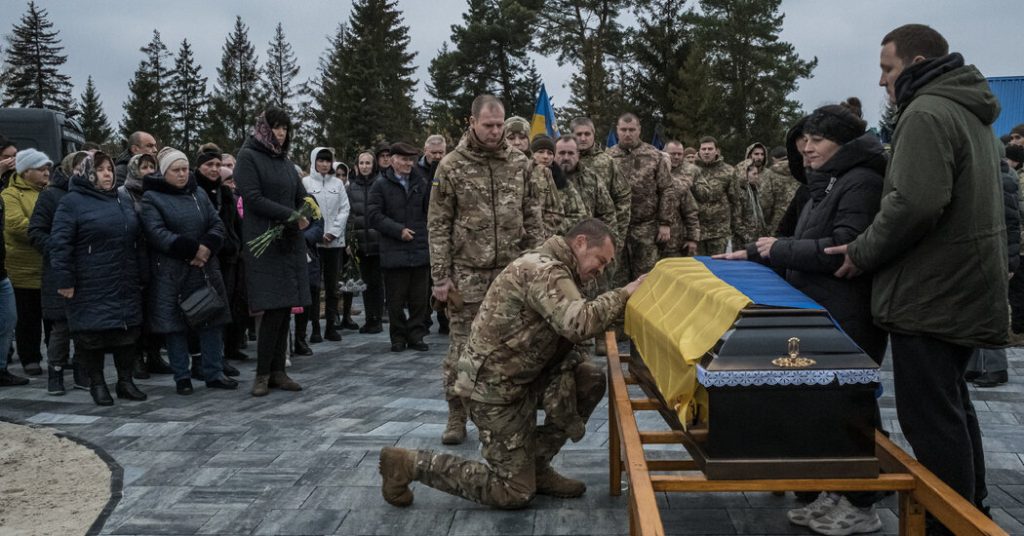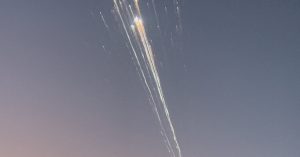Davos is coming just in time for the inauguration of Donald J. Trump 2.0, and Europe is anxious. Mr. Trump is like an asteroid heading for Earth, argues Hubert Védrine, a former French foreign minister, and debates about the impact will dominate the cozy, internationalist bubble that gathers each year in the pricey snow of the Swiss Alps.
Mr. Trump talks variously about huge new tariffs, about seizing Canada, Greenland and the Panama Canal, about tying American involvement in European defense not only to Europeans increasing their military spending but also decreasing their trade surplus with the United States.
Mr. Védrine and other analysts caution that Mr. Trump likes to talk big and then bargain, and that threats and issues come and go. As his former national security adviser, John Bolton once told USA Today, working in Mr. Trump’s White House was “like living in a pinball machine,” as Mr. Trump careened from one issue to another.
But one of the dominant topics in Davos is likely to be Ukraine. Mr. Trump says he wants to end the war in a day, which virtually no one takes literally, not even his special adviser for Ukraine, Keith Kellogg. Mr. Trump or no, Ukraine is slowly losing the war, and negotiations are coming to try to end the bloodshed, probably this spring.
But on what basis is the key question. President Vladimir V. Putin of Russia is facing high inflation and interest rates but has put his country on a wartime economy in what he presents as an existential conflict with the West. Despite very high casualties, he is so far able to replenish his losses with major financial incentives: 70 percent of his forces are contract soldiers and only 7 percent are draftees, said Zaki Laïdi, a French analyst who advised the European Union’s former foreign policy chief, Josep Borrell Fontelles.
Mr. Putin believes that he is winning the war and that Western resolve to keep supporting Ukraine at such high economic cost, with so little Ukrainian progress in the trenches, is waning, argues Liana Fix of the Council on Foreign Relations in Washington. So even if Mr. Putin agrees to a request or even a demand from Mr. Trump to enter negotiations, he is considered unlikely to agree to an unconditional cease-fire and will insist on stiff terms to end the war.
In his regular year-end news conference and television spectacular, Mr. Putin repeated his contention that Ukraine is not really an independent state. Any negotiations, he said, would start from “the current realities on the ground” and be based on Russia’s position in talks with the Ukrainians in Istanbul in 2022: that Ukraine agree to abandon its NATO aspirations and become a neutral state, accept strict limits on the size of its armed forces and change some of its laws to respect Russian interests. Whether Mr. Putin would accept Ukrainian membership in the European Union is unclear, but doubtful, given that his opposition to a much weaker association agreement between Kyiv and Brussels led to the 2013 Maidan uprising.
“Putin wants a reordered world, with Ukraine under control and NATO rolled back,” Ms. Fix said. An American official, speaking anonymously because of the sensitivity of the topic, said that Mr. Putin wanted “not just a neutral Ukraine but a neutered one.”
Mr. Putin’s stated intentions to reorder the security architecture in Europe, undermine NATO and divide Washington from Europe go well beyond Ukraine and must not be ignored, said Norbert Röttgen, a foreign policy expert and legislator with the Christian Democratic Union, the party expected to win Germany’s election in late February. “The future of Europe is a security issue, and we must make this war a failure for Russia,” he said. “Because even if it succeeds at all the lesson is that war works.”
It is not clear how to ensure that Russia fails without a sharp and rapid increase in European support for Kyiv. European leaders talk about the need to do so and spend more to defend themselves. But they are divided over how urgent a danger Russia represents to them. They have their own financial difficulties, with low growth and aging populations, and they disagree on how much to spend on their own militaries, even as Mr. Trump is expected to demand that Europe also take over much of the burden for supporting Ukraine.
Mr. Trump’s disinterest in multilateral alliances and his desire to shift to concentration on China means that responsibility for European security “is ours now for the first time since December 1941, and Europe is not prepared for this fundamental change,” Mr. Röttgen said.
Mark Rutte, the new secretary general of NATO, who will be at Davos, argues similarly, that Europe must do more in its own defense to support Ukraine so it can negotiate from strength and deter Russia in the future, no matter who is the American president. European allies “must shift to a wartime mind-set,” he said. He will urge NATO to set a new goal for military spending at 3 percent or even 3.5 percent of gross domestic product at the next alliance summit meeting this summer in The Hague.
Given that Russia is not about to collapse, Mr. Laïdi said, “We in Europe need to deter Russia and amp up our defense and start working seriously together.”
Mr. Röttgen echoed that call. Europe simply must do more and more efficiently, and do it through NATO, with less nationalism, he argued. “Europe needs to understand that its defense industry is about security and not just about jobs,” he said.
Ukrainian leaders understand that negotiations are coming. For some time now, President Volodymyr Zelensky of Ukraine has stopped insisting that the war can end only with a full restoration of Ukrainian control over its 1991 borders, including Crimea and large chunks of eastern Ukraine, long occupied by Russian troops. Mr. Zelensky, who will visit Davos, instead is emphasizing security guarantees for his country after the fighting stops, insisting that only membership in the NATO alliance will be satisfactory.
That is unlikely to happen, most analysts and officials in Washington and Europe agree. But many, including Mr. Rutte and key members of the outgoing Biden administration, argue nonetheless that just another big push of support for Ukraine this year will bring Mr. Putin to a more serious negotiation. But it is unclear where that big push will come from.
“We still hear that Ukraine is fighting our war, but let’s tell the truth,” said Charles A. Kupchan, a former Obama administration official and senior fellow at the Council on Foreign Relations. “The United States has a policy without a strategy,” insisting that the West will support Ukraine as long as it takes and that Ukraine alone can decide when and how to negotiate, as if Washington had no interests of its own, he said. “That’s dangerous and it’s turning Ukraine into a failed state,” he said.
Some see Russia and its desire to continue the war collapsing under economic and business pressure, Mr. Kupchan said. “But I see the opposite: Russia is OK and Ukraine is running out of gas, without enough manpower or air defense, and it’s not like it’s all sitting in Western warehouses — we don’t have it.”
But even if fighting ends, the toughest issue, everyone agrees, is Ukraine’s future security. Is there a possible form of NATO membership and collective security that covers only part of sovereign Ukraine? Would membership in the European Union, also considered far down the road, be sufficient? What would Russia tolerate, and could any promises not to invade again be trusted?
Some argue — and think Mr. Trump may demand — that Europe should handle Ukraine’s security and suggest putting in European troops after a cease-fire. But would they be there to monitor a cease-fire or to police one? And if so, given the enormous size of Ukraine and its long borders with Russia, how many thousands of troops would be necessary? How much would all that cost? Would it pull troops away from defending NATO members and undermine their trust in the alliance’s commitment to collective defense? And would they not require American air cover?
The suggestion of European troops, originally floated by the Estonians and sometimes mentioned by President Emmanuel Macron of France, has been greeted with considerable skepticism, including by Poland, which has its own long border with Russia.
A senior German official, also speaking anonymously in normal diplomatic practice, calls the whole discussion premature and irresponsible, giving Russia an easy way to divide Europe and the United States. First, he said, one has to see how the war ends.
For Mr. Röttgen, the war is less about territory than about Ukraine’s sovereignty. “Ukraine must emerge as a sovereign, viable country,” he said. That at least feels doable, but what remains unclear is how to ensure that the Ukraine that emerges will not be invaded again.





